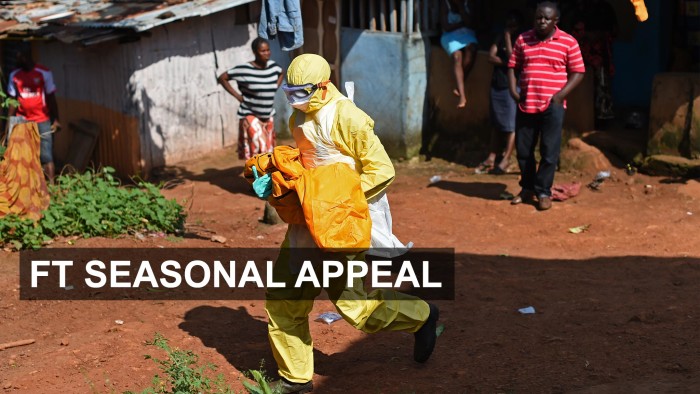FT readers help raise £1.9m for International Rescue Committee

Roula Khalaf, Editor of the FT, selects her favourite stories in this weekly newsletter.
Financial Times readers have helped raise £1.9m for the International Rescue Committee, its Seasonal Appeal partner this year.
The New York-based charity provides emergency humanitarian relief in more than 30 global hotspots. During the past two months, FT journalists have reported on the IRC’s work in several of the world’s most troubled regions, including Syria, South Sudan and west Africa, and its refugee resettlement programme in the US.
David Miliband, president and chief executive of the IRC, thanked FT readers for their generosity, saying the money raised would be spent on helping vulnerable people rebuild lives shattered by conflict and disaster. The charity, founded by Albert Einstein in 1933, would also increase investment in research and innovation to boost the impact of its programmes.
“With the ongoing fighting in Syria and Iraq, the havoc caused by the spread of Ebola in west Africa and the massive displacement of millions in South Sudan, Central African Republic, Nigeria and Pakistan, there has never been more need for the work of the International Rescue Committee,” Mr Miliband said.
The British government has matched the funds raised from FT readers. Justine Greening, international development secretary, said the matching funds would be targeted at the humanitarian crisis in Syria, where millions of people were “suffering unimaginable hardship and in desperate need of humanitarian support”.
“By matching public donations pound for pound, the UK is helping the IRC double its impact on the ground to provide even more Syrians with vital medical supplies, clean water and education,” she said.
The British government will continue to match donations made before February 8.
The IRC has also received donations from American Express, BT, Novartis, the Asfari Foundation and the Lundin Foundation.
The FT seasonal appeal has helped raise more than £16m for charitable causes since 2008.
Comments